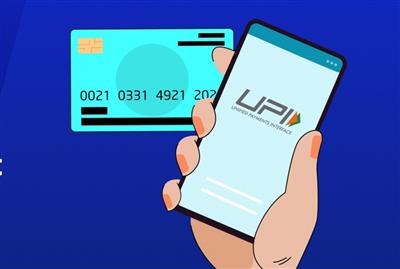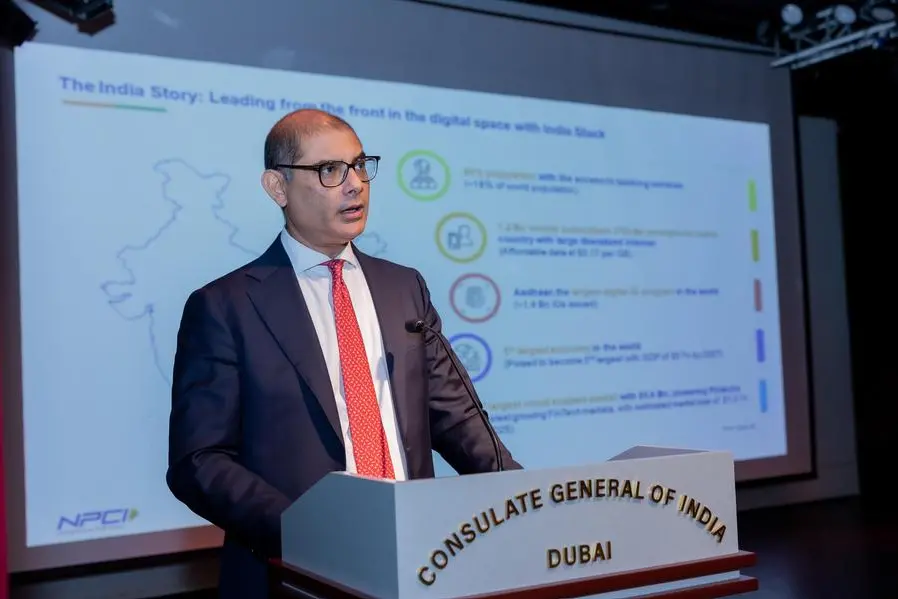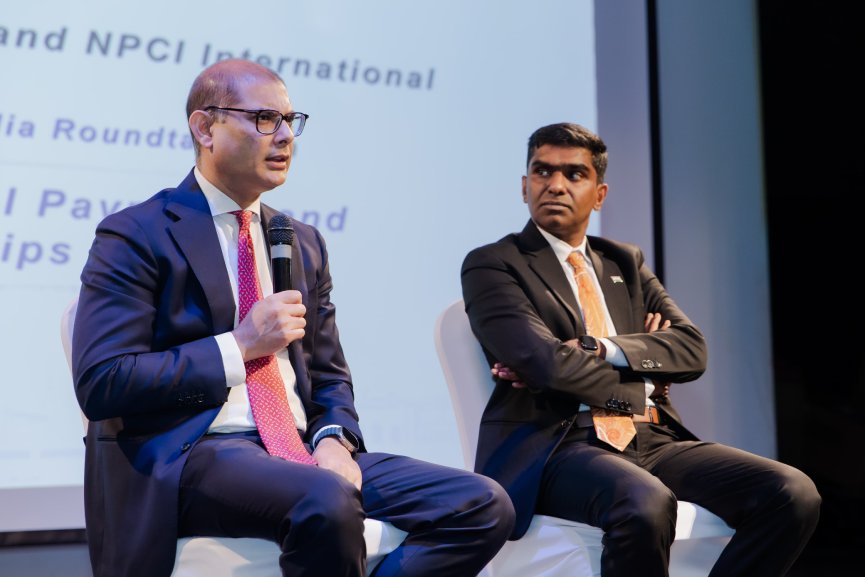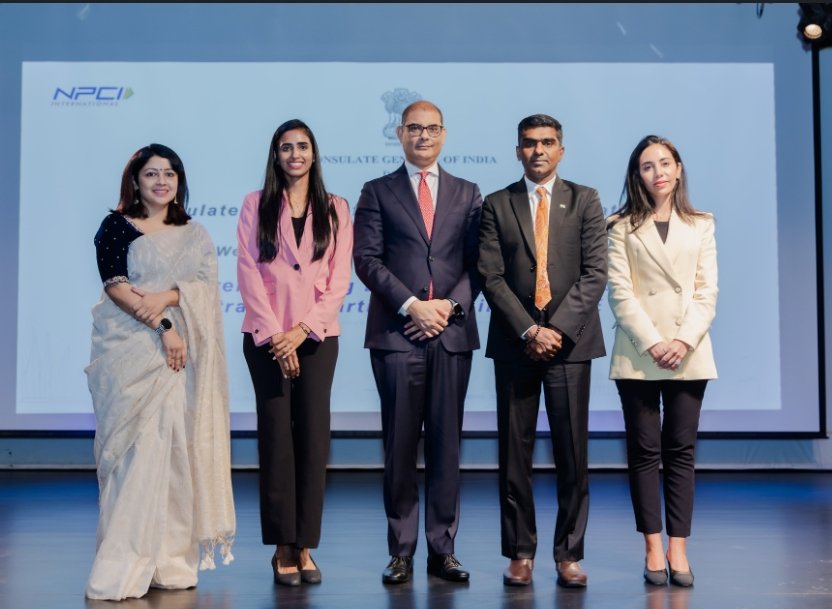The way we pay for our coffee, groceries, travel, and even bills is changing at an unprecedented pace. Across the globe, digital payments have steadily replaced cash, with countries embracing cashless economy models as part of their national visions. One country that’s making remarkable progress in this area is the United Arab Emirates, and at the heart of this shift is India’s homegrown innovation — the Unified Payments Interface (UPI).
The National Payments Corporation of India (NPCI), through its international arm NPCI International Payments Limited (NIPL), is rapidly accelerating the adoption of UPI across the UAE. This initiative is not only simplifying payments for the millions of Indian expats living in the Emirates but is also supporting the country’s long-term vision of becoming a fully cashless economy.
A Bold Step Towards a Cashless Future

For a nation like the UAE, where innovation meets tradition, embracing modern payment solutions has been a natural progression. The government has long been vocal about its ambitions to reduce dependency on physical currency and shift toward contactless, digital solutions that enhance efficiency, security, and financial inclusion.
NPCI’s UPI has already proven to be a game-changer in India, transforming how people transact by allowing instant bank-to-bank payments via smartphones. The simplicity, speed, and zero-cost model made it a favourite among users and merchants alike. Recognising its potential, the UAE saw an opportunity to integrate this proven system into its own payment infrastructure.

The partnership between NPCI International and UAE-based payment service providers aims to ensure that residents, visitors, and especially the sizeable Indian community can make seamless UPI payments in the UAE, just like they would back home. Whether it’s paying at restaurants, retail outlets, or utility services, UPI is quickly becoming a familiar and preferred option.

Making Life Easier for Millions of Indians in UAE
For the 3.5 million Indian expats in the UAE, this development is more than a matter of convenience — it’s about bringing a slice of home to a foreign land. Indian residents can now use their existing UPI apps to pay in rupees or dirhams at select merchant outlets, eliminating the hassle of currency conversion or dealing with cash.
From small grocery stores to high-end malls, UPI is slowly being integrated into the UAE’s dynamic retail environment. This not only simplifies transactions but also ensures transparency and financial security for both consumers and businesses.
More importantly, it opens doors for smoother cross-border remittances. Indians working in the UAE often send money back home to support their families. With UPI now available in the Emirates, sending funds instantly, securely, and at minimal cost is becoming easier than ever.
Strengthening India-UAE Economic Ties
The adoption of UPI in the UAE is more than just a financial initiative; it’s a reflection of the growing economic and diplomatic ties between India and the Emirates. Both countries have been keen on collaborating across various sectors, from trade and tourism to technology and infrastructure.
By integrating UPI into the UAE’s payment landscape, the two nations are not only promoting financial innovation but also enhancing mutual trust and cooperation. This move supports the broader economic partnership agenda, attracting businesses, investors, and entrepreneurs who benefit from seamless financial transactions.
The strategic importance of this development lies in its potential to bridge the financial ecosystems of India and the UAE, making it easier for businesses to operate across borders and for individuals to manage their finances more effectively.

Supporting Small Businesses and Local Merchants
One of the standout benefits of UPI’s presence in the UAE is its ability to empower small businesses and independent merchants. For many of these local vendors, adopting cashless payment systems was often costly and complicated. UPI offers them an affordable, user-friendly alternative that works instantly and doesn’t involve high transaction fees.
Street vendors, cafes, and small service providers now have the option to accept UPI payments, improving their operational efficiency and customer satisfaction. By enabling digital transactions for even the smallest merchants, UPI is helping to foster financial inclusion and drive growth in the grassroots economy.
Additionally, it reduces the risks associated with handling cash, encourages better financial record-keeping, and makes businesses eligible for digital promotions and incentives.
A Safer, Contactless Payment Experience
Post-pandemic, consumer behaviour around payments has changed dramatically. People are more conscious about hygiene, opting for contactless methods wherever possible. UPI fits perfectly into this new normal, offering a safe, secure, and touch-free payment experience.
In the UAE’s fast-paced retail and hospitality sectors, speed and convenience are everything. UPI allows customers to pay within seconds by scanning a QR code, reducing queues and improving overall service efficiency. With end-to-end encryption and multi-factor authentication, it’s also a secure way to transact, giving users peace of mind.
Why the UAE Chose UPI
The decision to introduce UPI in the UAE wasn’t coincidental. The system’s proven track record in India, its scalability, and adaptability to various currencies and regulations made it an ideal candidate for international adoption.
The UAE government has always been proactive in embracing cutting-edge technology, whether it’s AI-driven public services or digital identity systems. UPI’s arrival fits seamlessly into the Emirates’ broader vision of becoming a global fintech hub. It also aligns with the country’s ambition to be one of the world’s most digitally advanced economies.
By choosing UPI, the UAE ensures it remains at the forefront of financial innovation while offering value-added services to one of its largest expat communities.

Looking Ahead: What’s Next for UPI in UAE
As UPI’s footprint continues to grow across the UAE, there are plans to integrate it into even more services and sectors. From public transportation payments to bill settlements and peer-to-peer transfers, the possibilities are endless.
Travelers from India visiting the UAE for business, tourism, or personal reasons will soon be able to use UPI at airports, hotels, and tourist attractions, making travel experiences smoother and more convenient. The system’s expansion also promises to make international remittances faster, cheaper, and more transparent.
Moreover, NPCI International is exploring collaborations with more local banks and fintech companies to broaden the acceptance network and create new financial products tailored for the UAE market.
A Win-Win for Everyone
The accelerated adoption of UPI in the UAE is a win for consumers, businesses, and governments alike. For consumers, it’s about convenience, security, and familiarity. For businesses, it means operational efficiency, cost savings, and access to a broader customer base. For the government, it represents progress towards a digital-first economy that fosters innovation and financial inclusion.
It’s also a proud moment for India, showcasing how homegrown innovations like UPI can successfully make their mark on the international stage, transforming economies and improving lives in other parts of the world.
Conclusion
The collaboration between NPCI International and the UAE is more than a financial agreement — it’s a partnership that’s redefining the future of digital payments in the region. As UPI continues to integrate itself into the UAE’s everyday life, it reinforces the country’s commitment to a cashless, efficient, and inclusive economy.
With UPI’s simplicity, affordability, and adaptability, the UAE is taking a giant leap toward a digitally empowered society. And for the millions who live, work, and visit the Emirates, this revolution is making everyday life simpler, faster, and safer — one cashless transaction at a time.
Do follow UAE Stories on Instagram
Forget UAE’s Golden Visa: Why More Indians Are Eyeing Bahrain’s Golden Residency













